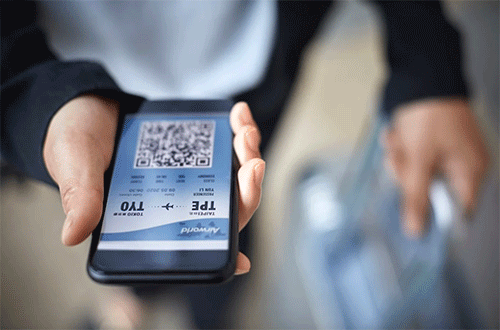The International Air Transport Association (IATA) with industry partners successfully tested the first fully integrated digital identity travel experience, from shopping for flights to arrival, on a journey from London Heathrow (LHR) to Rome Fiumicino (FCO) with British Airways.
“Our vision for future travel is fully digital and secured with biometric identification. While the technology exists to do this at each stage of a journey, linking these steps together has proven challenging. Today, with our partners, we showed that it is possible. This will open up a world of possibilities for simpler journeys in the future,” said Nick Careen, IATA’s senior vice president for operations, safety and security.
The digitally enabled journey illustrated the potential of a future fully integrated digital travel experience by leveraging biometrics. This is achieved through personalised offers, Simplified Orders, effortless travel requirements check, simplifying and securing check-ins and contactless airport experiences. The digital journey is also enabled by One ID, which uses digital identity and biometric technology to support the digitalisation of admissibility as well as contactless travel standards and making physical identity checks at check-in and boarding redundant.
“As an airline, we are always innovating and looking at ways to make the customer journey as seamless as possible. We introduced biometric boarding on selected flights earlier this year and it has been a huge success with positive customer feedback. Working with IATA on enabling a fully integrated travel journey helps us build on that and shows us what could be possible in the future,” said Dirk John, British Airways Chief Information and Digital Officer.
The companies involved in the project include Accenture, Amadeus, Australian Border Force, AWS, Branchspace, British Airways, IDnow, Aeroporti di Roma, SICPA, Trip.com, and Verchaska.
“The goal is to create value for travellers by meeting their needs. Passengers want a personalised, seamless digital experience when shopping for air travel and they expect consistent service irrespective of whether they purchased their travel directly from the airline or via a third party. This is being achieved by modernising decades old standards, processes and technology to the digital environment,” said Muhammad Albakri, IATA’s senior vice president for financial settlement and distribution services.
“In future, a smart phone storing a digital wallet that is loaded with your digital passport, loyalty cards and other verifiable travel credential, is all that will be needed to travel. Achieving that reality needs the kind of cooperation that we have demonstrated today with 11 companies coming together to facilitate the first fully integrated digital journey. Success, of course, is underpinned by interoperability and global standards—so the advantage of the digital travel conveniences are available to travellers throughout their journey and wherever it may take them,” said Careen.
“Information from verifiable credentials is shared on a need-to-know basis. While a government may request detailed personal information to issue a visa or prove admissibility to travel, the only information that will be shared with the airline is that the traveller has a visa and which type. Passengers want complete control of their own data. And that is what they will get—in a travel experience that is secure, simple and convenient,” Careen added.



